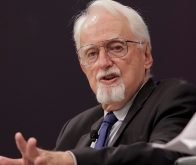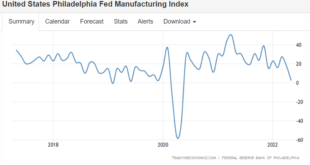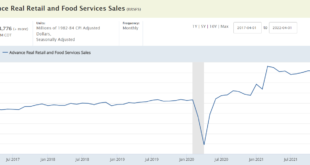from Lars Syll The orthodox Keynesianism of the time did have a theoretical explanation for recessions and depressions. Proponents saw the economy as a self-regulating machine in which individual decisions typically lead to a situation of full employment and healthy growth. The primary reason for periods of recession and depression was because wages did not fall quickly enough. If wages could fall rapidly and extensively enough, then the economy would absorb the unemployed. Orthodox...
Read More »Open thread May 20, 2022
Philly Fed Manufacturing, home sales, miles traveled
Post-war collapse theme intact: Falling back to the pre-Covid war trend line: We’re back burning fuel with abandon:
Read More »Thinking like an Economist?
from Peter Radford Thinking like an economist. What a horrible thought. Can you imagine anything more restrictive and less imaginative? It requires you to disengage from reality and enter a world constrained by absurd assumptions, odd definitions, and a lack of foundation. The entire edifice of economics sits, in all its glory, suspended in mid-air and relying on what the philosopher Daniel Dennett describes as “sky hooks” to hold it up. Beneath it is only vapor and foggy notions of...
Read More »Retain sales, homebuilder sentiment, housing starts
Not growing when adjusted for inflation: Down but still high vs historical data: Trend still intact: Trend still intact:
Read More »The truth will out: the US, Russia, and Ukraine
Watch this (30 seconds long): The truth will out: George Bush speaking about Russia and Ukraine The truth is out about Iraq, and it will eventually out about Ukraine. The worst thing about this video is the fawning complicit response of the audience which speaks volumes about elite US society. Please share. P.S. Another 30 […]
Read More »In economics value-neutrality is an illusion
from Peter Söderbaum I am a professor emeritus with many years of experience of the functioning of university departments of economics and other social science disciplines, such as business management. As has already been made clear I consider the close-to-monopoly position of neoclassical theory at university departments of economics as a major problem in relation to aspirations of sustainable development. The two “facts” that (a) values are necessarily involved in research and education...
Read More »Economics Textbooks
from Steve Keen Thomas Kuhn once famously described textbooks as the vehicle by which students learn how to do “normal science” in an academic discipline. Economic textbooks clearly fulfil this function, but the pity is that what passes for “normal” in economics barely deserves the appellation “science”. Most introductory economics textbooks present a sanitised, uncritical rendition of conventional economic theory, and the courses in which these textbooks are used do little to counter...
Read More »Open thread May 17, 2022
Crypto-crash: graph
Source: Forbes
Read More » Heterodox
Heterodox



